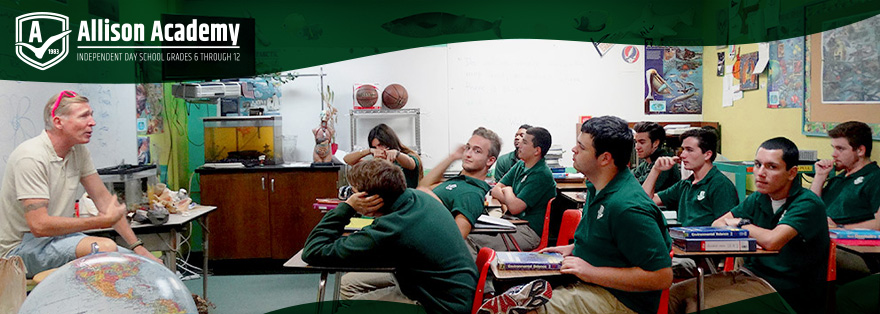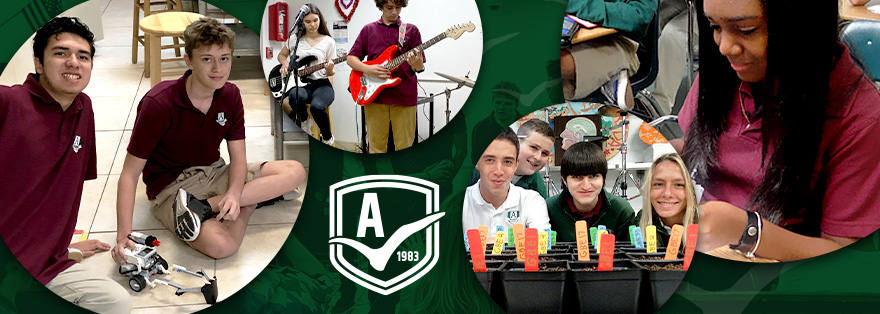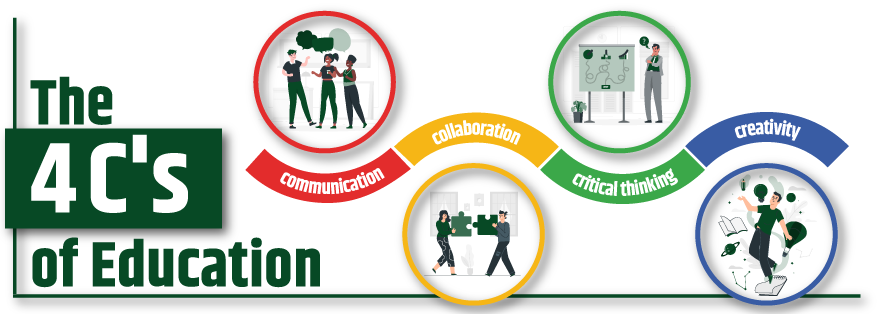Ready for success and jobs of the future

The world has witnessed numerous innovations in the 21st century, both technological and social. But has education kept pace with these changes? Standard education is no longer able to provide the skills that are in demand on the labor market. This is why modern schools in the United States are focusing on 21st-century learning skills.
This education system is preparing students for all the challenges that await them in the real world so as to have a successful career and life. In order to achieve this goal, students need to learn the key skills of the 21st century.
What are 21st-century learning skills?
In order to ensure students are ultimately equipped with career readiness, learning has been elevated to a higher level, with focus on content knowledge, social studies, technology skills, etc. Future-ready schools base their programs on these 21st-century learning principles. The goal is the acquisition of skills that will enable students to be ready for the challenges of modern society. This way we prepare them for jobs of the future which still don’t exist.
In order for students to be competitive in today’s world where work conditions are dictated by the global economy, they need to develop the following skills:
Critical thinking
Developing the ability to analyze problems and come up with logical and quality solutions. It’s necessary to objectively assess a situation and take into account all the information and proposals provided by other team members. It’s also important to be critical to your own suggestions in order to find the best possible answer.
Creativity
Developing out-of-the-box thinking skills so as to overcome challenges in an original fashion. The goal is for students to find their own paths in order to create something effective and original. This is the road towards innovation in all aspects of life on which modern society is built.
Collaboration
Teamwork is key to success, not just in education but in life in general. This is why twenty-first-century education largely focuses on this skill. Collaboration entails solving problems together, accepting other people’s ideas, developing team spirit and learning how to accept responsibility within a team. Making work-related errors is another important lesson children need to learn. They are taught to be collegial, full of understanding and excellent team players.
Communication
Presenting ideas and exchanging opinions using different methods; ability to actively listen and understand other people’s views. These skills allow people to work well in company teams and cooperate with business partners. Therefore, it’s clear that communication skills are key to student development, which is why they are thoroughly developed in schools. In addition, communication skills include negotiation abilities, which are necessary for managing crises in life and work.
Information literacy
Ability to find and correctly interpret information. Given that information is omnipresent, it is important to learn how to find authentic sources. To do this, one needs to learn how to determine the veracity of a claim, which is particularly important for information coming from social media. This is important not just for education, but because it enables people to identify the dangers children face online.
Media literacy
A set of skills that allow you to understand the media and the information provided by the media. Given that we live in the digital age, we need to have a critical attitude towards all forms of information so as to be able to recognize quality and identify manipulation. Children are expected to understand messages sent via social media, video games, movies, TV series, podcasts, etc. Growing up in an environment where media content is a click away requires a special approach and education.

Technology literacy
The ability to understand the Internet and its positive and negative aspects.
Flexibility
This life skill is essential for navigating through society and achieving goals. This means that sometimes it’s necessary to accept another person’s view in order to reach a “higher goal”. Understanding differences between people is fundamental for teamwork and connecting with others.
Leadership
A set of skills pertaining to prominent individuals in society. It mostly includes problem solving and organizational skills, and taking responsibility in the decision making process. These are all skills of business leaders, but also top athletes and experts in many fields. Not every student has to be a leader, but every student should acquire these skills in order to successfully overcome every challenge in life.
Initiative
Ability to identify problems and solve them without outside pressure. It’s highly important for middle and high school students to understand that organizational skills and additional effort always pay off.
Productivity
One of the biggest challenges for students in all age groups is maintaining a high level of productivity. Today’s students have a higher level of motivation if they learn according to the modern system that values 21st-century learning skills. Modern learning methods in schools such as Allison Academy actively engage students, thus increasing productivity.
Social skills
Social skills have become more important in the 21st century. Social media has provided students with a plethora of possibilities to connect. However, it’s important for them to learn that new possibilities are linked with social responsibility. This primarily refers to learning about tolerance and understanding differences in society.
21st-century skills are essential for student development. These are “survival skills” which will help students during their education and professional development.
What are the 4 C’s of 21st-century learning?
The most important 21st-century learning skills are:
- Communication
- Collaboration
- Critical thinking
- Creativity
They are the foundation of modern education, which is why a special focus is placed on the 4 C’s.
These are also life skills, as they can be applied in every segment of one’s social life. Given that it includes independent work and problem solving skills, critical thinking is often the most highlighted of the four. It’s particularly valued by employers, as they appreciate experts who are able to innovate and come up with new solutions.
The segments that comprise 4C education also affect college and career readiness, which is why educators have a great responsibility to convey these skills in the right way.

How do you teach 21st-century skills to students?
Teaching 21st-century skills requires competent teachers who know how to convey skills such as: digital literacy, innovation skills, problem solving, etc. This is possible only in the best schools which use innovative teaching and learning methods that provide students with a stepping stone for higher education that will prepare them for their future careers.
Allison Academy’s framework for the 21st century is a modern approach to learning that combines elements of different skills for maximum effect. In other words, students can understand leadership better if they link it to communication, flexibility, initiative, productivity, etc.
The goal of acquiring these skills is for students to engage in decision making, learn how to apply skills in a real-life context, and prepare for the challenges that await after graduation. We must not forget that 21st-century skills are tools for a lifetime. They allow teachers to help students with other areas, such as identifying one’s talents, career profiling and job seeking. These are all important skills one gains in middle school and high school.
What are 21st-century learning strategies?
In order to bring 21st-century skills closer to students, we need to forget about standard learning methods. Gone are the days when students sat and listened to the teacher’s monologue. Now children gain soft skills through knowledge-based and innovative tasks and games.
The idea is to use innovative assignments and activities to inspire students to think in an advanced manner so they can apply their skills in real life. An important part of this process are the teachers, who invest significant effort in finding a creative way to implement the curriculum.
The desired effect requires active in-class participation, which is achieved through:
- Joint projects
- Oral and written tasks (poems, scripts, music and arts)
- School projects which blend several subjects
- Research
- Competitions
Although teaching 21st-century skills is more complex than standard teaching, it helps students to obtain long-term knowledge and skills that have practical benefits.


